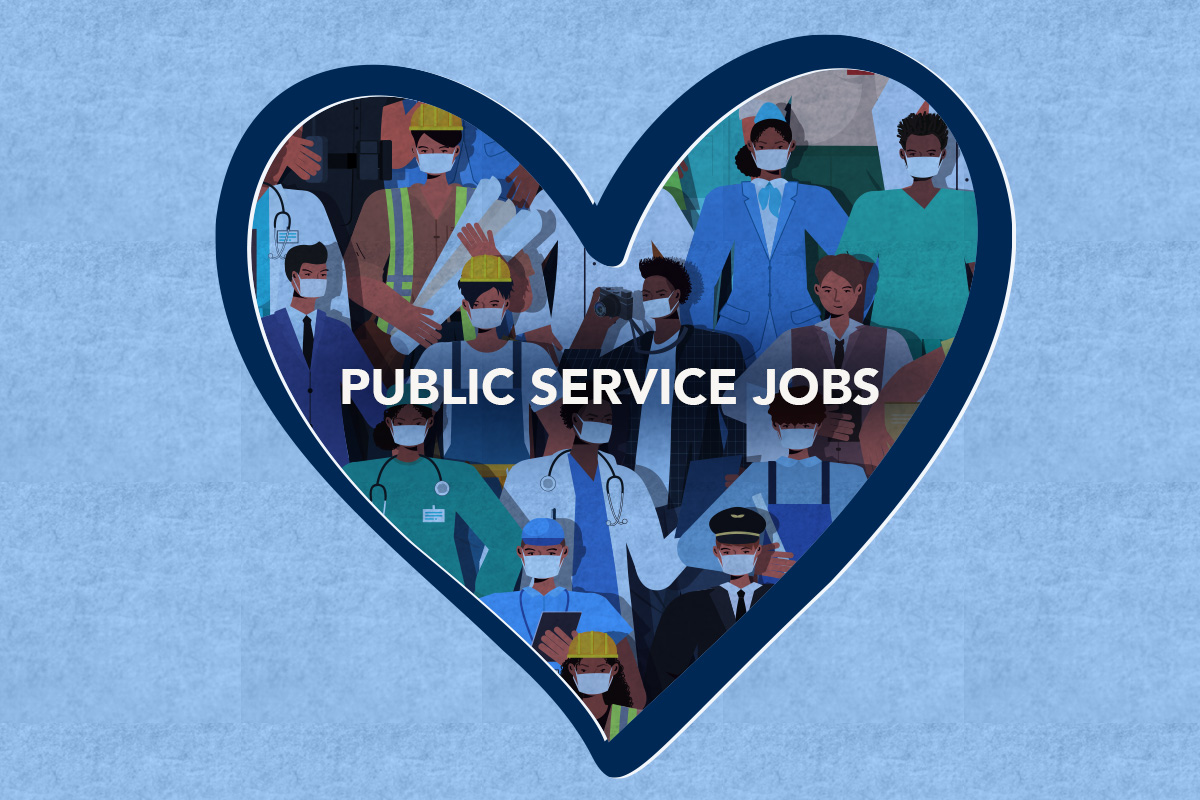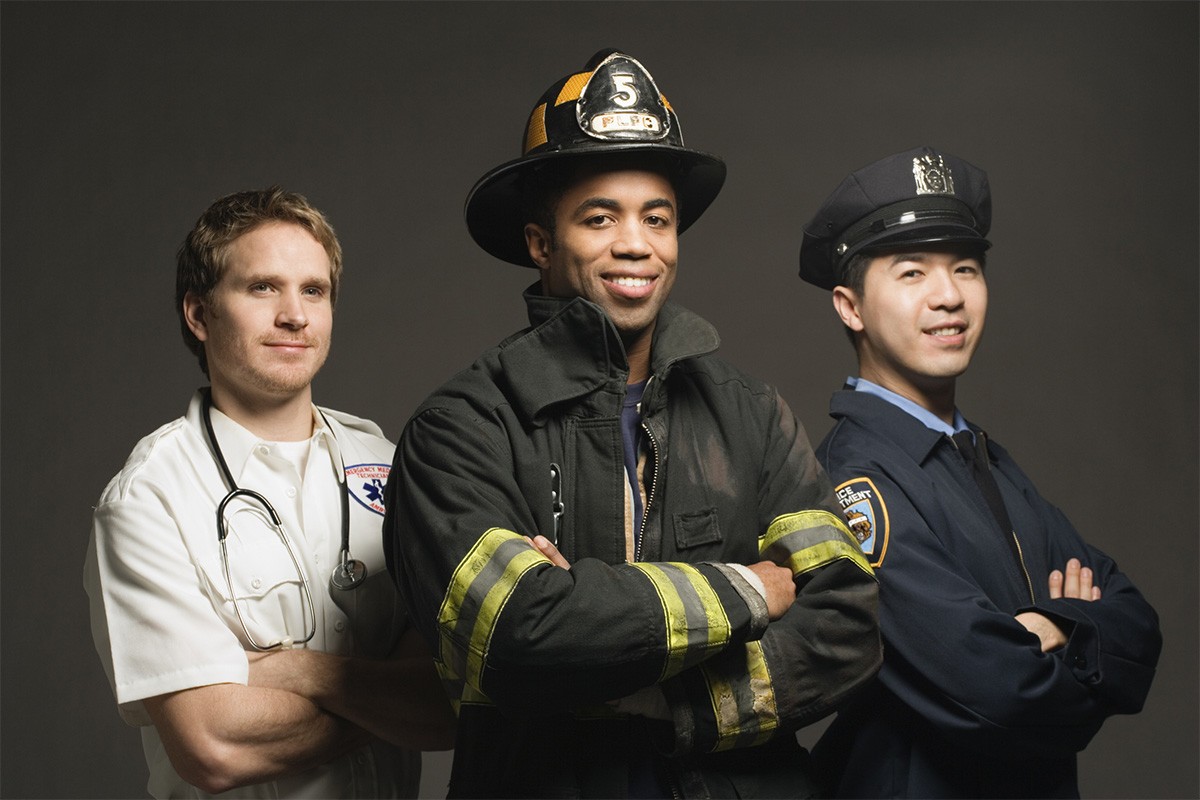Many of us are driven by a sense of duty and are motivated to give back to our communities. A public service career is one way in which we can direct those feelings into action, but we may not know where we would fit into the workforce.
In this article, we provide a quick overview about public service professions and a detailed breakdown of several options for a public service career.
What Are Public Service Jobs?
First, we’ll start with a definition of public service. A public service job is one in which you work for the government, an organization contracted by the government, or a nonprofit organization, doing work that benefits the public in some way. Public service careers can be at the federal, state or local level, depending on the position.
Read More: The Importance of Public Service
Public Service Employment Outlook
One of the many economic impacts of the COVID-19 pandemic has been rising unemployment, but public service workers in the U.S. have been affected less than colleagues in other areas. According to the Bureau of Labor Statistics, the national unemployment rate rose from 3.7% in 2019 to 8.1% in 2020; government workers, however, saw unemployment rise from 2.3% to 4.8%, representing one of the smallest increases in any category.
Public Service Career Options
Careers in public service are as varied as those in the for-profit world, as government agencies and nonprofit organizations need skilled employees across a broad spectrum. Here is a breakdown of six of the most popular public service career options.
1. Criminal Justice
Careers in criminal justice can include everything from crime investigation to law enforcement. Police officers and detectives are common positions in law enforcement, but they aren’t the only options. Cybersecurity, corrections and other specialties are all viable options in the field. Engaging with people, helping your community and upholding the law are all excellent reasons to consider a criminal justice career.
2. Emergency Management
Emergency management professionals typically work for government agencies and prepare for – and lead responses to – large-scale emergencies. Their jobs may include working on emergency response procedures, coordinating interagency operations, conducting training exercises, and communicating with the public during emergencies. Emergency managers are relied on for their expertise when communities need help the most.
3. Emergency Medical Services
If you’ve ever dreamed of being a first responder and helping others directly, a career in emergency medical services – commonly known as EMS – is worth considering. Emergency medical technicians and paramedics have the skills to respond to medical emergencies and assess patients in real-time, literally saving lives and protecting the public.
You can also go a step further with a career in EMS administration. EMS degree programs train students in concepts like situational awareness, hazard control, communications, regulations and more. With the knowledge and skills that a degree brings, you can work your way up from EMT to administrator and help your teams make fast, important, life-saving decisions.
Related: EMT vs. Paramedic: Education, Training Requirements and More
4. Fire Science
The field of fire science covers more than being a firefighter; it can include everything crucial to protecting communities from fires, including arson investigation, leadership, administration and more. Fire science courses are taught by seasoned experts who’ve worked in the field and are updated on the latest emerging trends in the fire service.
Related: Beyond the Firehouse: Career Options With a Fire Science Degree
5. Homeland Security
Protecting the nation is as important now as it ever has been, and a career with the Department of Homeland Security can be rewarding and purposeful. There are many areas to explore in the field, including customs and immigration, transportation security, and more. If you’re considering working for the DHS, a homeland security degree may give you an education more focused on your future career than a typical criminal justice program would provide.
6. Public Administration
A career in public administration is another effective method for enacting change. Public administrators analyze and implement governmental policies. City managers, lobbyists, clerks, auditors, court administrators and inspectors are all examples of public administration or government jobs. Many of these positions have various educational requirements and feature some degree of on-the-job training. Working in public administration can be an incredibly fulfilling and meaningful way to help enact positive change through your work.
Conclusion
The need for skilled and knowledgeable public service workers won’t ever go away. At Columbia Southern University, many of our students spend their professional careers in the public service.
To learn more about our online degree programs in criminal justice, cybersecurity, emergency management, fire science, homeland security and more, visit our website.





